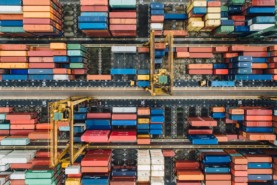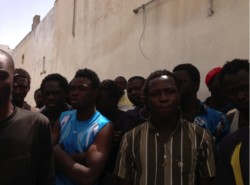Event Details
Posted on 20 Oct 2015
In early September 2015 the International Institute for Democracy and Electoral Assistance (International IDEA) and the Electoral Tribunal of the Federal Judiciary of Mexico (TEPJF) in collaboration with the National Electoral Institute (INE) and the Organisation for Economic Co-operation and Development (OECD) hosted the world’s first global conference on “Money in Politics” in Mexico City. The three-day conference covered a range of different thematic sessions such as protecting democratic politics from money-based influence and effective enforcement of political finance regulations.
Its aim was not only to gather leading academics, practitioners and conference makers in order to address the issue of money in politics from a variety of angles but also to provide a space to share lessons learned and set up a coordination platform between individuals and organisations.
The Global Initiative’s Director Mark Shaw presented on the session on “How to curb the influx of illicit money to parties and candidates” which focused on how criminal networks are corroding political systems and infiltrating political institutions as well as the role of drug money and violence.
In his presentation, Mark Shaw identified three phenomena related to organised crime and their connection to democratic politics.
- Money in politics forms a protection network. Two kinds of actors (those who do criminal activities and those who provide protection) are often located at the top of the system to reduce transaction costs.
- The fees that are paid for protection at the top of the network create dependencies and obligations at the bottom of the system. These are very hard to break.
- A major problem appears where much of the protection is provided by the security establishment itself – when the actor who ought to protect the democratic system is subverted and harms it.
Despite his warning that there are no easy solutions Mark Shaw stressed that we must try to move forward and to counter these issues nonetheless. Three areas have both their limitations and opportunities:
- Regulatory systems and campaign finance transparency are not necessarily a silver bullet. Illicit funding does not follow the official system and the illicit economy is extraordinarily entrepreneurial.
- The use of state society and media where state law enforcement structures have been subverted presents enormous challenges to those who are active. We have to be clear about the boundaries of what journalism and civil society can achieve in certain contexts.
- Interventions of symbolic value carry long term power. Citizen activism offers a community response where individuals do not dare to speak up. Similarly, symbolic prosecutions where law enforcement capacities are limited can expose the connection between high level individuals and illicit activities.
Read the full conference report here.



